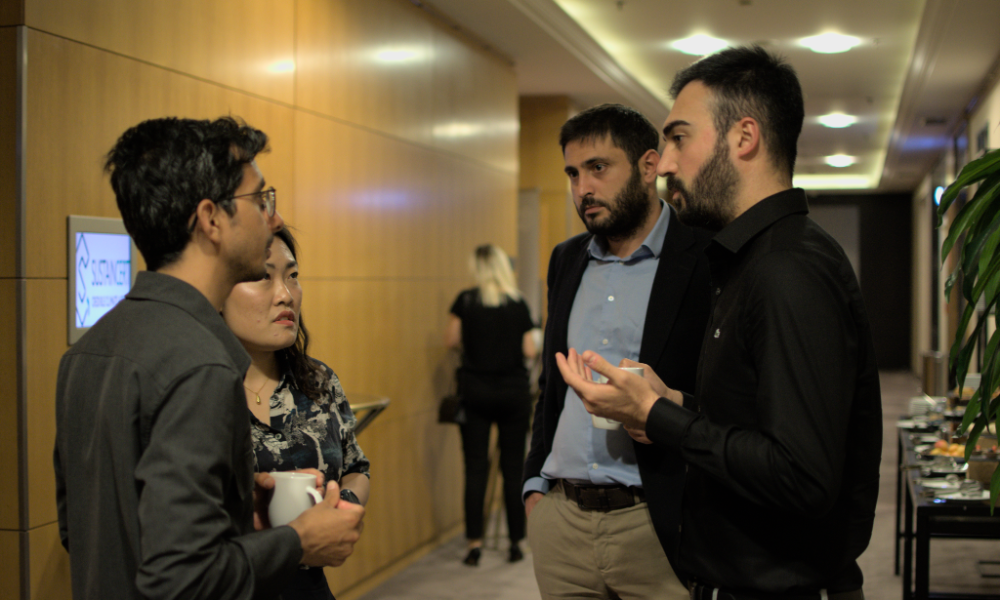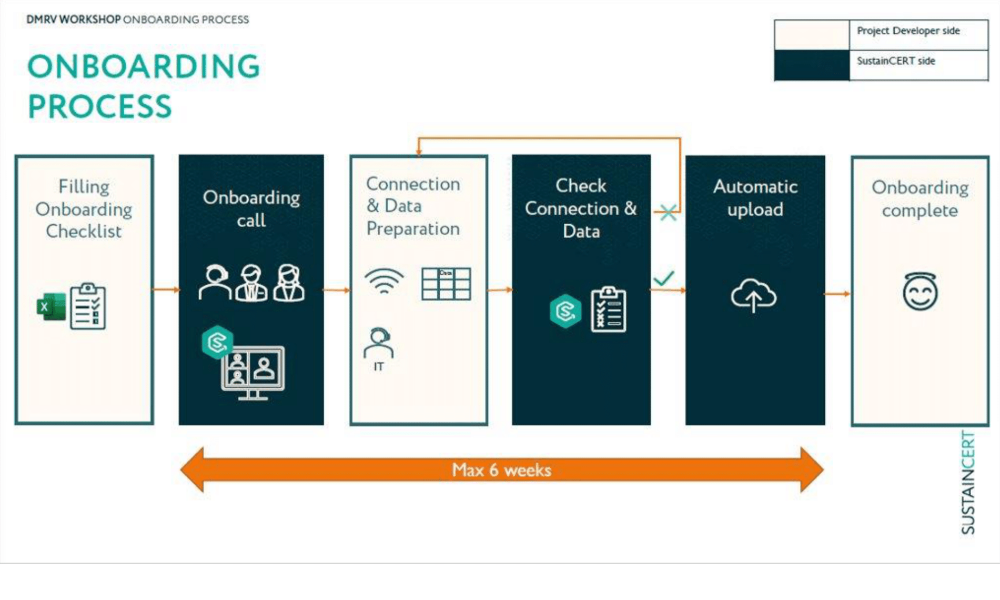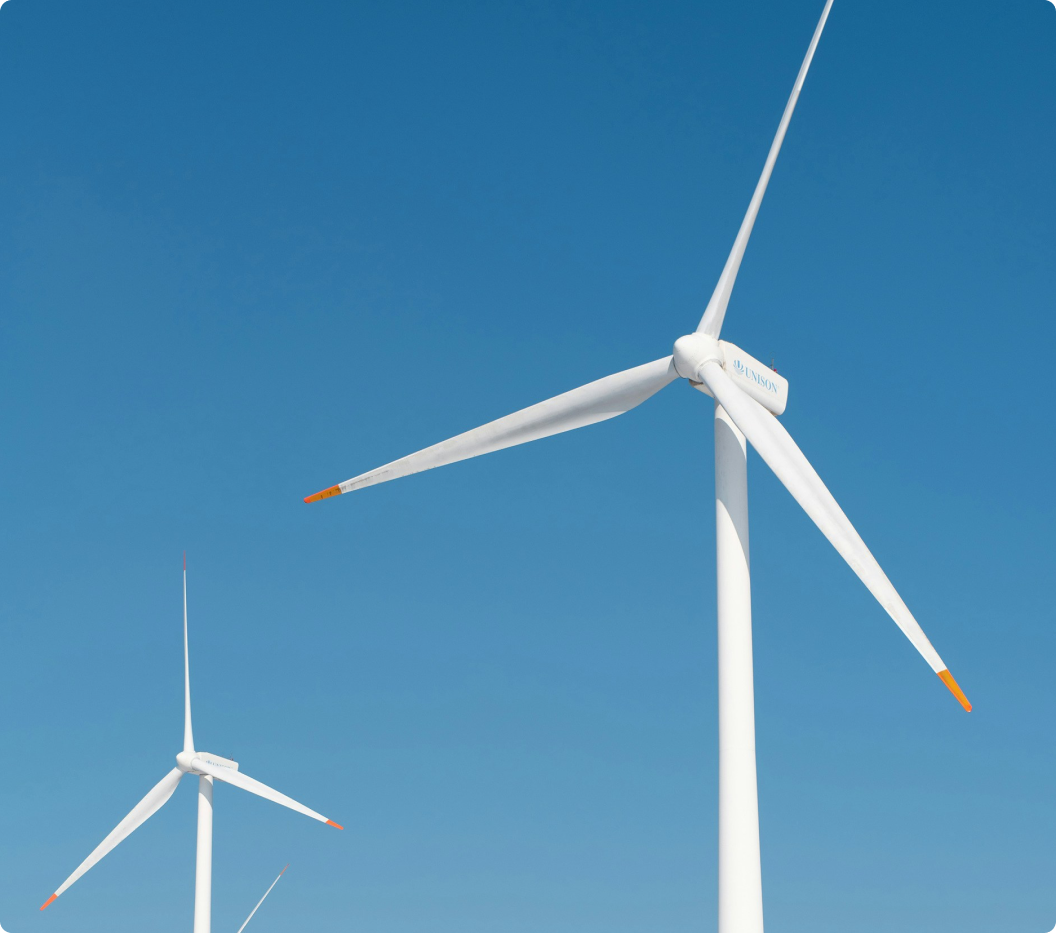
March 2023
Insights from our digital verification workshop in Turkey
Ahead of launching the world’s first digital verification service for renewable energy projects, SustainCERT gathered almost 50 industry representatives to participate in workshops in Istanbul and Ankara in June 2023. The participants represented over 80 renewable energy projects in Turkey - including power producers, consultants, and IT managers. The workshop aimed to share more on the process and benefits of digital verification, but it also had a very practical angle: showing project developers how they can establish the IT connection required to get their data on the digital verification platform.
Transforming the verification process from one that is manual to digital will increase the speed, accuracy, and frequency at which carbon credits can be verified and issued – helping project developers get their emission reductions on the carbon market faster and with higher quality.
The workshop highlighted keen market interest in digital verification and many project developers are excited to try the solution – but they still had some questions in mind. So, what were the biggest questions participants asked in the workshop, and what are the answers?
What is digital verification and what are the benefits?
Digital verification will bring impact verification for carbon markets into the digital age. Our unique digital platform enables emission reductions to be verified without extensive paper trails and site visits, instead compiling necessary data directly from project sites through digitally connected meters. This allows project data to be available in near real-time, all centralized on the SustainCERT platform.
Digital verification stands to unlock higher speed, more credibility, and frequency for verifying carbon credits without compromising on rigor. For project developers, this means:
- Higher frequency: As a project developer, you gain more flexibility in determining your monitoring period. The bird's eye view of data on the platform enables you to choose multiple monitoring periods per year.
- Data automation: The continuous data flow goes through automatic statistical checks, giving near real-time insights into data quality and performance. All monitoring data is verified and used for emission reduction calculations.
- Process efficiency: The digital process enables faster onboarding and greater overall speed. Data science aids project developers and auditors, reducing time and investment in performing core duties.

How do we start the process – and how easy is this?
The onboarding process establishes the IT connection between the onsite meters and the SustainCERT platform to start the digital verification process. The aim is to complete the onboarding process in 6 weeks. The process is managed by a dedicated SustainCERT onboarding team together with the project developer. It starts off with the project developer filling in a checklist, followed by an online call where SustainCERT introduces the process, provides a live demonstration, and discusses technical details regarding the connection and metering setup. Next, a connection is established between meters at the project site and the SustainCERT platform, kicking off automatic data upload. The onboarding is completed successfully when SustainCERT confirms the metering setup, and the data is successfully transferred.

Which meters do we connect to?
Every metering situation is different and the dedicated SustainCERT onboarding team together with the power producer will determine which meter is appropriate for the connection.
The meters used for digital verification must be at a point where the net electricity is exported from the power plant. Since the government meters are sealed, we seek the connection to the closest aggregate point that is within the jurisdiction of the power producer. This could be a SCADA meter at the pulling substation of the power producer – the final aggregate point before electricity is exported to the government substation. Digital verification data collection must comply with the grid legislation of the host country. In brief, the connection to the SCADA meter is eligible and there is no need to connect to any government-sealed meter. These datasets will be verified against invoices.
Which projects can use the digital verification solution?
The digital verification services will be available for renewable energy projects (registered methodology ACM0002 and AMS.ID) in the summer 2023. While workshop participants were all active in the renewable energy sector, interest was also high to expand the solution to other project types. In the future SustainCERT will introduce new project types to the scope of digital verification, including but not limited to cookstoves, metered devices, and Nature Based Solutions. We will also look to continue expanding digital verification to other SDGs in addition to SDG 13: Climate Action.
Get in touch with us to find out further project requirements for participation.
What happens next?
Interested in knowing more about frequent issuance of carbon credits by using our digital verification service? Reach out to our team.

